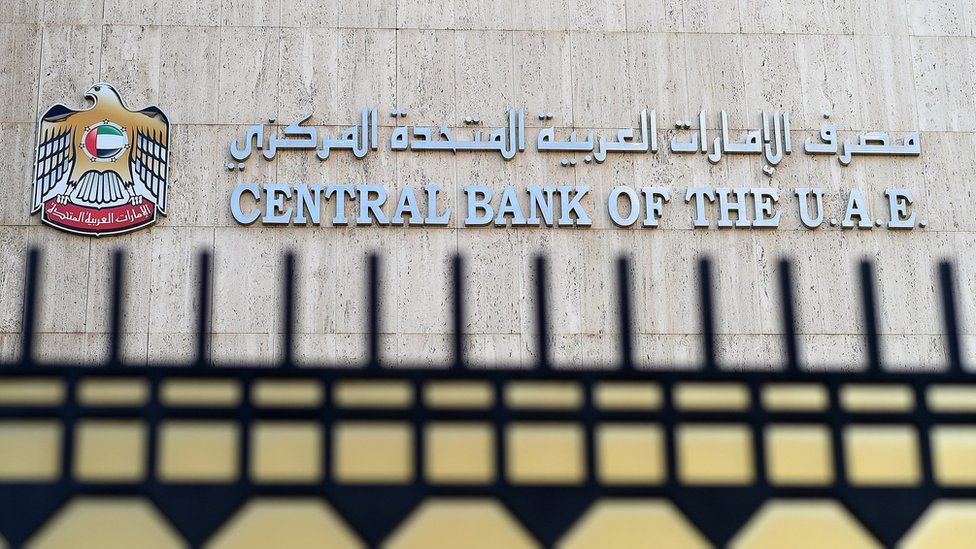A Comprehensive Look At The Penalties and Closures of Companies in the UAE

The UAE Central Bank has penalised companies that violate banking regulations. Two exchange companies licences were revoked, and a financial and insurance company were fined for failing to comply with the Central Banks anti-money laundering and insurance regulations. Penalties and closures of companies remind us of the importance of regulation and having robust compliance programs in place.
UAE is a country known for its economic prosperity and rapid development in the financial sector. The Central Bank of UAE plays a crucial role in regulating the financial sector. They ensure that financial institutions operate within the law.
In February 2023, the Central Bank of UAE imposed several fines and penalties on companies that violated banking regulations. In this article, we will take a closer look at the penalties and closures of companies in the UAE.
Revocation of Exchange Company Licences
The Central Bank of UAE revoked the licences of two exchange companies that failed to comply with regulations. The first company failed to adhere to the Central Banks anti-money laundering regulations. The company violated the regulations by failing to report suspicious transactions. They did not conduct adequate customer due diligence. The revocation serves as a warning to other financial institutions to comply with regulations.

The second exchange company faced the same fate as its licence was also revoked by the Central Bank. The company failed to maintain adequate capital reserves. It resulted in putting the companys financial stability at risk. The Central Bank revoked the companys licence to protect the interests of the companys customers.
Imposition of Fines
In addition to revoking the licence, the Central Bank of UAE also imposed fines on companies that violated banking regulations.
- Financial Company Fined For AML Compliance
The Central Bank of UAE imposed a fine of Dh 1.8 million on a Financial company. They violated the Central Banks anti-money laundering regulations. The companies failed to report suspicious transactions. They did not implement adequate anti-money laundering procedures.
- Insurance Company Fined
The Central Bank imposed a fine on an insurance company for violating the insurance regulations. The company failed to comply with the required solvency margins. It determines the companys ability to meet its financial obligations. The fine serves as a reminder to other insurance companies to adhere to the required standards of operation.
Importance of Regulation
The penalties and closures of companies in the UAE serve as a reminder of the importance of regulation in the financial sector.
The Central Bank of UAE is committed to ensuring that financial institutions maintain the highest standards of financial integrity.
The enforcement of regulations is essential in maintaining trust in the financial sector. Protecting the interests of customers is also very important.
- Impact on the Reputation of Companies
The penalties and closures of companies in the UAE can have a significant impact on the reputation of the companies involved. Customers and investors may lose trust in a company that has violated banking regulations, which can lead to a loss of business and revenue.
Companies that comply with regulations are more likely to attract and retain customers and investors. It can have a positive impact on their reputation and financial stability.
- Compliance Programs
The penalties and closures of companies in the UAE highlight the importance of having robust compliance programs in place. Financial institutions must ensure that their employees are trained on regulatory requirements. All the necessary processes and procedures must be in place to comply with regulations. Failure to implement adequate compliance programs can result in significant penalties. It can also damage the reputation of the company.
- Collaboration Between Financial Institutions and Regulators
Financial institutions and regulators must work together. It will maintain the integrity of the financial sector. Financial institutions must be transparent with regulators. They should cooperate with regulatory investigations to ensure that the violations are identified. Regulators must also provide guidance and support to financial institutions. It is to ensure that they are aware of regulatory requirements and can comply with them effectively.
- Long-Term Impact on the Financial Sector
The penalties and closures of companies in the UAE can have a long-term impact on the financial sector. Regulators must take a tough stance on regulatory violations. It will maintain trust in the financial sector and prevent future violations. Financial institutions must also take responsibility for their actions. They should ensure that they comply with regulations to maintain the integrity of the financial sector.
Conclusion
In conclusion, the Central Bank of UAE plays a critical role in regulating the financial sector in the country. The penalties and closures of companies serve as a warning to other financial institutions to comply with regulations or face similar consequences. The revocation of licences and imposition of fines sends a clear message. The Central Bank of UAE is committed to enforcing regulations that protect the integrity of the financial sector.
The enforcement of regulations is essential in maintaining trust in the financial sector and protecting the interests of customers.
